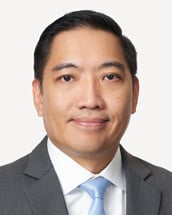In brief
Many of us have heard the term “Metaverse,” which is commonly used to refer to the combination of technologies that allows us to access a virtual reality world or bring virtual reality into the physical world, as first mentioned in Neal Stephenson’s scientific novel “Snow Crash” (1992). The term “Metaverse” has become one of the biggest buzzwords over the past year, and recently we have seen tech giants striking deals to take part in the metaverse.
Promoting Thailand as the regional EV hub
Companies from e-commerce to fashion and entertainment are piling into the metaverse as well, betting on its growth. Even before the arrival of the pandemic, we had already started to experience some blurring of the boundaries between the physical and virtual worlds. The pandemic expedited this and made the convergence more prominent as the world struggled to respond and adapt, from virtual work meetings to telemedicine and some other forms of virtual healthcare delivery. Some say the closest metaverse experience could be found in the gaming sector. In this article, we do not aim to delve into the technicalities of the metaverse, but rather to explore what it could mean for the future of healthcare and opportunities for healthcare in the metaverse, including those which arise from devices and technology that enable us to access the metaverse.
When talking about healthcare, we would normally think about physical visits to hospitals and clinics, to which we travel to see physicians and receive our treatments in person. With the advancement of technology, combined with the push from the COVID-19 pandemic, healthcare services and patient engagement are being transformed at a rapid pace. During the pandemic, many of us have already experienced virtual healthcare delivery at some level with the use of telemedicine for patient-to-doctor consultation and also for doctor-to-doctor consultation, as well as e-pharmacy. Now with the potential of a three-dimensional and multi-sensory metaverse experience made possible by the use of technologies, including AR, VR, Mixed Reality (MR) and AI, we are talking about a move to the next level of healthcare delivery.
A combination of these technologies in the virtual universe opens up exciting opportunities for the healthcare industry, not only for tech and medical device companies, but also healthcare professionals and patients, in terms of enhanced proficiency of services and reach. Opportunities in the metaverse, including those that arise from the devices and technology used to access the metaverse, for healthcare include: improved telemedicine experience through AR/VR; digital therapeutics; using avatars for private consultations with psychiatrists; creating a more patient-friendly medical experience; augmenting medical procedures, such as 3D surgery; enhancing treatment and diagnosis through data interconnectivity; and the list goes on.
The metaverse, however, presents some unique challenges, especially for the healthcare sector. Key among these is patient’s data and privacy. It will be necessary to ensure that patients’ confidential information is safe and secure. Healthcare providers in the metaverse will need to work out how to keep patients’ records, for example, determining if this will be in and/or outside of the metaverse and who will have access to these records. Additionally, it will also be important to consider potential cybersecurity issues and measures to handle risks from security breaches, and how to ensure interactions in the metaverse are not compromised by these potential breaches.
Regulatory issues present another challenge. It will be necessary to explore how the regulatory requirements will apply to healthcare in the metaverse and the related devices and technology.
It will also be interesting to consider how clinical trials will be administered and regulated in the metaverse. For example, if the trial subjects appear as avatars in the metaverse but are physically located in various countries with the trial administered by AI, how will we verify the health data of these trial subjects using avatars and monitor adverse reactions?
Other questions include what qualifications should be required for healthcare professionals in the metaverse and how to verify their credentials, what would be the identification process for both healthcare professionals and patients, and which country’s laws and regulations will apply in the metaverse and at which stage in the healthcare delivery.
In addition, for this ecosystem to be feasible on a wider scale, an appropriate business model may need to align health insurance, reimbursement and prescription schemes to fit in the metaverse.
By the same token, medical malpractice in the metaverse would be another challenge worth considering. It would also be interesting to think ahead about how medical malpractice claims can be made in relation to medical treatments in the metaverse; whether there will be a different standard of care in the metaverse or which standards will apply in this unique healthcare environment. Healthcare professionals may also have to expand their insurance to cover their practice in the metaverse.
As digital technologies continue to shape and transform healthcare, healthcare in the metaverse may become a reality sooner rather than later. Its potential and benefits are endless, but it also comes with new risks. There are fundamental legal and practical issues that need to be considered in building a trusted and workable ecosystem for the delivery of healthcare in the metaverse.






